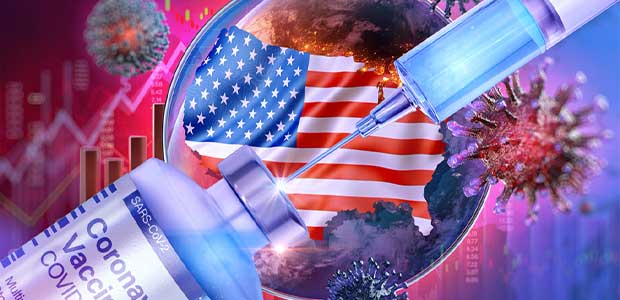
Unvaccinated Americans in Particular States are More at Risk to a New COVID-19 Variant
Some states are making great strides in vaccinations, while others are trailing behind.
- By Shereen Hashem
- Jun 29, 2021
Particular states are setting an example in vaccinating their residents against the coronavirus. The states, however, that aren’t following their lead may be dealing with a more “transmissible variant,” according to experts. CDC data shows, around 45.2 percent of the U.S. population is fully vaccinated. In 16 states including Washington, D.C., that proportion is up to more than half. These states showed that they reached President Joe Biden’s goal to vaccinate 70 percent of adults with at least one dose.
Some states, including: Alabama, Arkansas, Louisiana, Mississippi, Tennessee and Wyoming have fully vaccinated less than 35 percent of their residents. According to an article, there have been more than 500 days and 600,000 deaths since it was reported that the first person died from COVID-19 in the U.S. Experts have been relying on the vaccines to be the turning point for the country moving forward. The entire goal being reopening the country in the safest way possible while making sure variants are not being spread, most of which are transmissible.
The more transmissible and believed to be the most dominant virus strain, the Delta Variant, is said to cause a more severe, rapidly spreading disease. This could cause an upsurge in infections, but levels will vary depending on vaccination rates in each area, according to former FDA commissioner, Scott Gottlieb. "When we look across the United States, we see wide variance in terms of vaccination rates," said Gottlieb, who compared places like Vermont and Connecticut, which have rates of more than 80 percent, with others that are struggling to get to 50 percent.
A peak of a fall of around 20 percent of infections the U.S. recorded in January was shown in Delta’s models—the distribution of predicted surges not even covering all areas. "Connecticut, for example where I am, shows no upsurge of infection, but Mississippi, Alabama, Arkansas, Missouri, show very substantial upsurges of infection. That's based entirely on how much population wide immunity you have based on vaccination," he said. In Springfield, Missouri, combined with the Delta variant led to a significant increase in hospitalizations, at a healthcare system in the town called CoxHealth, according to its CEO, Steve Edwards.
Solely in the U.S., more than 300 million vaccine doses have been administered. This enabled students to go back to the classroom, businesses to reopen and families and friends to get together again. There is still a long way to go. The country has been focusing on getting vaccines distributed into mass vaccination sites, but it’s time to think how they can be made easily accessible to everyone.
About the Author
Shereen Hashem is the Associate Content Editor for Occupational Health & Safety magazine.